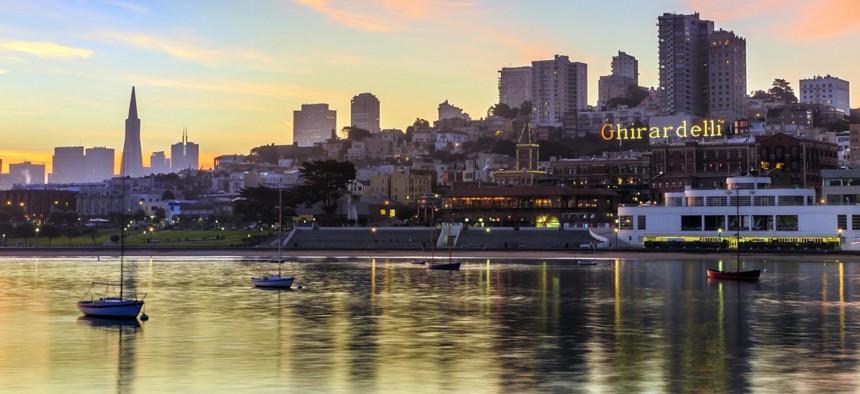Bolstering the Bay Area Against Climate Change Impacts

San Francisco, California
Rebuild by Design and The Rockefeller Foundation’s latest competition represents a shift in focus from disaster response to resilience planning.
The Bay Area in California just got its own urban resilience design challenge, with The Rockefeller Foundation on Monday granting local leaders $4.6 million to kickstart the search for infrastructure solutions to climate change.
Resilient by Design picks up where Rebuild by Design’s award-winning Hurricane Sandy Design Competition left off, helping San Francisco and surrounding cities address climate, seismic, housing and equity issues long term—as was first done in New York, New Jersey and Connecticut.
While the U.S. Department of Housing and Urban Development, now under the Trump administration, isn’t a partner this go-around, Rockefeller found an eager substitute in the San Francisco Planning Department.
“[T]his innovative challenge . . . will transform the Rebuild model from one of disaster response to resilience planning,” Amy Chester, Rebuild by Design managing director, said in the announcement. “The Bay Area has some of the most vibrant communities and we will look to connect the talent in those communities with the smartest policy makers, designers, architects, and others from across the region and around the world to create realistic solutions to build the Bay Area for the next generation.”
Starting in April, teams will begin working 10 replicable design solutions in the nine counties along San Francisco Bay—focusing on the intersection of problems like climate change with transportation or income disparities.
Berkeley, Oakland and San Francisco all have resilience strategies through their 100 Resilient Cities membership that the challenge will build off of.
Phase one of the Bay Area Challenge will consist of global teams conducting three months of research and public engagement to generate concepts around selected sites. After that comes five months of urban design.
All projects must bring multiple benefits to vulnerable populations.
“This is the guiding principle behind Resilient by Design: to focus all of the best minds in the Bay Area on holistically building our resilience,” Zack Wasserman, San Francisco Bay Conservation and Development Commission chair, said in a statement. “We look forward to not only seeing the forward-thinking design solutions these teams envision for our region, but also watching as they work with our communities and developers to implement their projects.”
Dave Nyczepir is a News Editor at Government Executive’s Route Fifty and is based in Washington D.C.
NEXT STORY: Accelerating virtual reality in government






